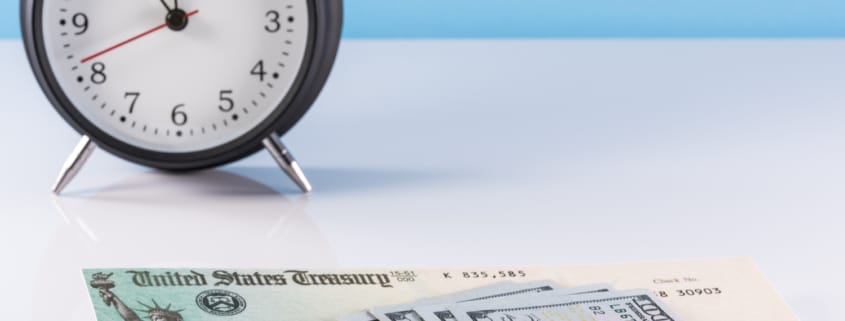Didn’t Get a Stimulus Check? You Might Be Able to File for a Recovery Rebate Credit
While COVID-19 has impacted every American in some way, shape, or form, not all of us have received federal stimulus checks. For many, this has turned a financial difficulty into a financial crisis. Thankfully, millions of taxpayers and non-filers could still be eligible for assistance through the Recovery Rebate Credit.
Keep reading to learn what the Recovery Rebate Credit is, who potentially qualifies to receive it, and how you can claim the credit on your 2020 tax credit — even if you haven’t filed taxes in the last few years.
What Is the Recovery Rebate Credit?
It seems counterintuitive, but the Recovery Rebate Credit is the Economic Stimulus Payment that many Americans have already received since the outbreak of COVID-19. According to the IRS, these checks were simply advanced payments of the Recovery Rebate Credit.
Americans who did not receive a stimulus (or did not receive the full amount) could be eligible to receive additional stimulus funds by applying for the Recovery Rebate Credit when they complete their 2020 taxes. Even if you aren’t receiving a refund on this year’s tax returns, you should attempt to qualify for the credit to offset the amount you owe the IRS.
How to Claim the Recovery Rebate Credit on Your Tax Return
The eligibility requirements for the Recovery Rebate Credit are essentially the same as they were for the first two rounds of stimulus checks. But while eligibility for the stimulus checks was based on your 2019 and 2018 tax returns, Recovery Rebate Credit eligibility is based on your 2020 tax return.
If your financial status changed over the past year, you should check to see if you qualify based on your change in income. Additionally, if you feel you were unfairly denied one or both of the first two stimulus checks due to an accidental garnishment or government oversight, you should look into your eligibility for the credit.
To claim the Recovery Rebate Credit, you should first click here to check your payment status. If you see any errors, you should speak with an experienced tax attorney about a potential rebate or payment trace. If, however, everything looks accurate, you will need to apply for the credit when completing your taxes.
Thankfully, your Form 1040/1040-SR will have a worksheet to help you determine if you’re eligible for the Recovery Rebate Credit — and, if so, for how much. Of course, you will need to know exactly how much federal stimulus money you received in 2020 (if any), which you should have in the form of a Notice 1444 or Notice 1444-B. If you did not receive or cannot find one or either of these notices, you can view your IRS account online here.
RELATED: How Will Coronavirus Relief Affect My Business Taxes Next Year?
Non-Filers Can Still File for Federal Stimulus Money
According to the IRS, nearly 10 million “non-filers” might have qualified for a stimulus check but failed to register to claim their payment. A non-filer is someone who does not pay taxes because of their age, income, employment, or SSDI/SSI status. These individuals can use the IRS’ Non-Filers tool to file their claim and potentially receive the Recovery Rebate Credit.
If you didn’t file taxes in 2019 or 2018, be sure to track down all of your financial records to determine if you’re eligible to receive the full or partial amount of the Recovery Rebate Credit.
Contact S.H. Block Tax Services for Help With the Recovery Rebate Credit
The moral of the story? Even if you didn’t receive a first or second stimulus check, you could still be eligible for as much as $2,000 (the full amount of both checks combined) in the form of a tax reduction or refund.
To learn more about the Recovery Rebate Credit, please reach out to S.H. Block Tax Services today. Our attorneys are highly experienced and well-versed in recent tax law updates. We are here to help Maryland taxpayers maximize their refund and would love to speak with you today.
Please contact us by completing this brief form or calling (410) 872-8376 for a free consultation!
The content provided here is for informational purposes only and should not be construed as legal advice on any subject.




Leave a Reply
Want to join the discussion?Feel free to contribute!